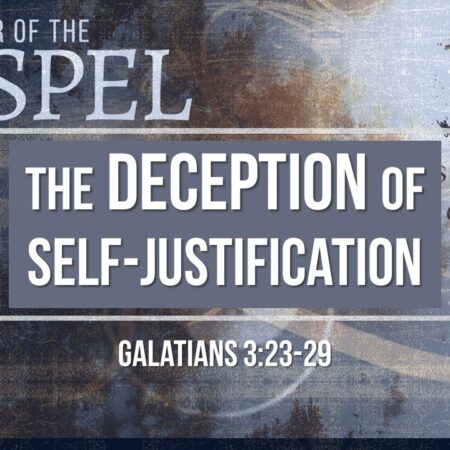The Purpose of the Law:
• The Law acted like a prison for men.
• The Law accuses and condemns men. As soon as a person violates the law, the law charges him.
• The law has no life and no power to deliver man from the punishment due him for his violation.
That’s exactly what the Apostle Paul is saying here in our text:
The law reveals the violation and condemns man, it imprisons him; it holds him captive.
• The Law was a schoolmaster or guardian
The English playwright and poet Dorothy Sayers in her book “Creed or Chaos?” published in 1949, is wondering why the churches had exchanged the Greatest Story Ever Told for bland moralism:
“Official Christianity, of late years, has been having what is known as “a bad press.” We are constantly assured that the churches are empty because preachers insist too much upon doctrine – “dull dogma,” as people call it. The fact is the precise opposite. It is the neglect of dogma that makes for dullness. The Christian faith is the most exciting drama that ever staggered the imagination of man – and the dogma IS the drama….
This is the dogma we find so dull – this terrifying drama of which God is the victim and the hero. If this is dull, then what, in Heaven’s name, is worthy to be called exciting? The people who hanged Christ never, to do them justice, accused Him of being a bore – on the contrary; they thought Him too dynamic to be safe.
It has been left for later generations to muffle up the shattering personality and surround Him with an atmosphere of tedium. We have very efficiently pared the claws of the Lion of Judah, certifying Him “meek and mild” and recommended Him as a fitting household pet for pale curates and pious old ladies.” Dorothy Sayers (1949)
Carl Teichrib in his book “Game of Gods” describes it this way:
“The one before Eve is shrewd and deliberate, showing an exceptional understanding of the human propensity to rationalize. The serpentine-dragon imagery is a powerful expression of his very potent nature. In the Garden he comes TO DIALOGUE, TO QUESTION AND TEST, and to masterfully engage in the salesmanship of self-justification.
It started with a simple yet suggestive question: “Has God indeed said, “You shall not eat of every tree of the garden?” The query INTROUDCES DOUBT.
Eve responded by confirming God’s admonition, but a seed had been planted in her mind.
“You will not surely die,” was the response given to Eve. “For God knows that in the day you eat of it your eyes will be opened, and you will be like God, knowing good an evil.”
THE BENEFITS OF PARTAKING APPEARED TO SURPASS THE COST.
Life would go on, wisdom was to be granted, and the human status would be elevated. This “knowledge” allowing one to apparently become as Yahweh Himself, WOULD ACHIEVE A GREATER GOOD.
Enlightenment was before them. Following the angelic advice, they engaged in the act of taking and eating, the first TECHNIQUE of human-proclaimed SELF-DIVINITY.
In so doing, they discovered the tempter had wiled them with a HALF-TRUTH. Immortality vanished and the idea of becoming “as God” proved illusionary. Of course, the truth-part was we experientially and spiritually entered the realm of the ‘KNOWLEDGE OF GOOD AND EVIL.”
We had now tasted its capability, but as the Garden incident demonstrated and human history shows, we were personally and collectively unable to control its capacity. IT CONTROLS US.
While acts of goodness are open to us, we have nevertheless been plagued by “divine nightmares” – kings and powers and nations “playing God” against one another.
What is Responsibility?
The Swiss Theologian Emil Brunner in his book “Man and Creation” explains it this way:
“Man is, and remains, responsible, whatever his personal attitude to his Creator may be. He may deny his responsibility, and he may misuse his freedom, but he cannot get rid of his responsibility. Responsibility is part of the unchangeable structure of man’s being. That is: the actual existence of man – of ever man, not only the man who believes in Christ – consists in the positive fact that he has been made to response – to God.”
“The human cry of I AM GOD is the first act of identity theft.”
John Stott comments on this verse in his writings:
“Paul’s statement does not mean that racial, social and sexual distinctions are actually obliterated…When we say that Christ has abolished these distinctions, we mean not that they do not exist, but that they do not matter.”

